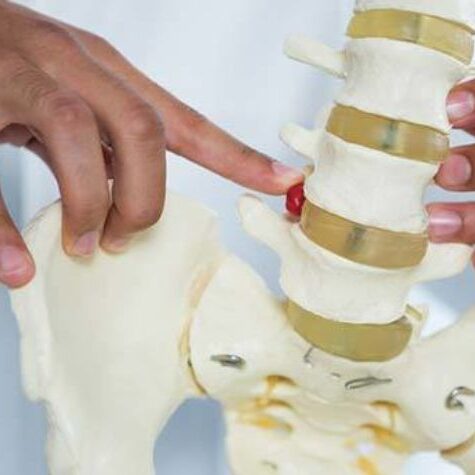What is a lumbar discectomy?
A lumbar discectomy is used to treat ruptured or herniated discs in the lower back. It can be done in two ways: minimally invasive and open.Minimally invasive uses a series of smaller incisions rather than one larger incision used in the open procedure. In both cases, a surgeon removes the part of the disc, causing the problem. This eases the pressure of the disc on the large nerves in your spinal cord. Removal of the damaged disc should relieve the pain and discomfort a patient might have previously experienced. You might need this surgery if you have a herniated disc in your lower back that’s causing you to experience debilitating symptoms.
Some symptoms may include weakness, pain, or tingling in the back or in the legs. A lumbar discectomy can’t be used to treat all cases of back pain. And not everyone with a damaged disc needs a lumbar discectomy. Your physician may recommend surgery if you’ve tried other treatments, such as physical therapy and anti-inflammatory medicines, but are still experiencing severe symptoms.
What will I experience during recovery?
This surgery is usually an outpatient procedure, meaning the patient can go home the same day as the procedure. Your surgeon will give you instructions about how you can and can’t use your back following surgery. You might need to limit lifting or bending. Your provider might have you wear a back brace for a limited time after the procedure. You might also be prescribed physical therapy to strengthen your back.
There can be some pain after surgery. Your surgeon might prescribe pain medications to deal with post-surgical discomfort. However, you should experience full relief from the original pain after the first couple of days after surgery.
Risks and complications
All surgery has risks. The risks to every individual may vary depending on your age and general health. Talk with your surgeon about the risks that most apply to you. However, your physician, nurses, and surgical team take every precaution to minimize risks to your health. Some risks for this procedure include:
- Infection
- Bleeding/Blood clots
- Nerve Injury
- Reaction to medications used in surgery
- Only temporary relief which might lead to another surgery
If you want to learn more about Lumbar Discectomy or would like to schedule a consultation, request an appointment with NewSouth NeuroSpine today.

